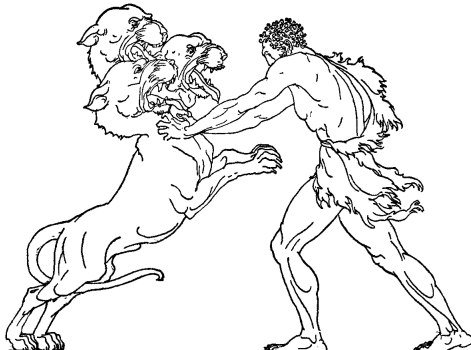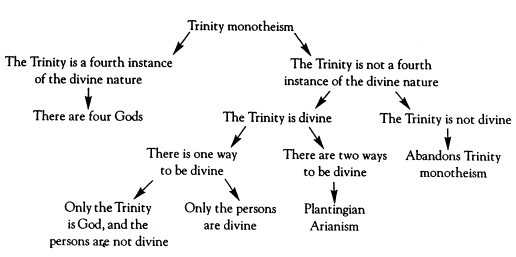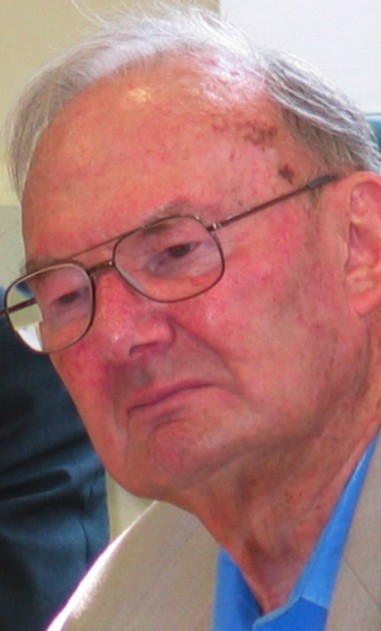William Lane Craig is a respected and extremely prolific Christian philosopher. I’d give you his c.v., but it might bring the internet to a standstill. He’s sometimes a bit pugnacious in print, but is very amiable in person. And he’s extremely sharp. His trinitarian co-theorizer, J.P. Moreland, is also influential and inhumanly prolific, and is one of the clearest, best organized writers around. He’s been called a “scrappy” arguer, which is apt, and he’s also a swell guy (I took classes from him at Biola in the early 90s, and I’m grateful for how he influenced me). A Willardite, he also writes books about Christian spirituality, such as this good one. Both Craig and Moreland are well known for their many forays into the popular area, in the form of books on apologetics, public debates and such.

Nice doggie… nice doggie… What’s Cerberus here got to do with the Trinity? Keep reading.
Read More »Moreland’s and Craig’s “Trinity Monotheism” – Part 1





